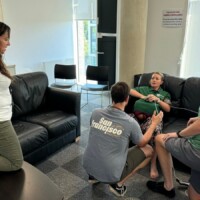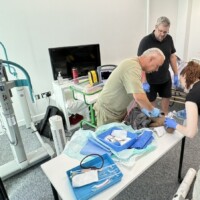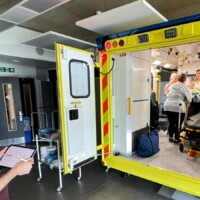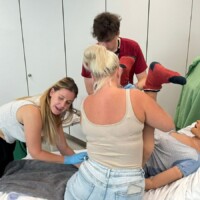Lifesaving learning and important insights at Waterside for paramedics
Date 8.08.2024
8.08.2024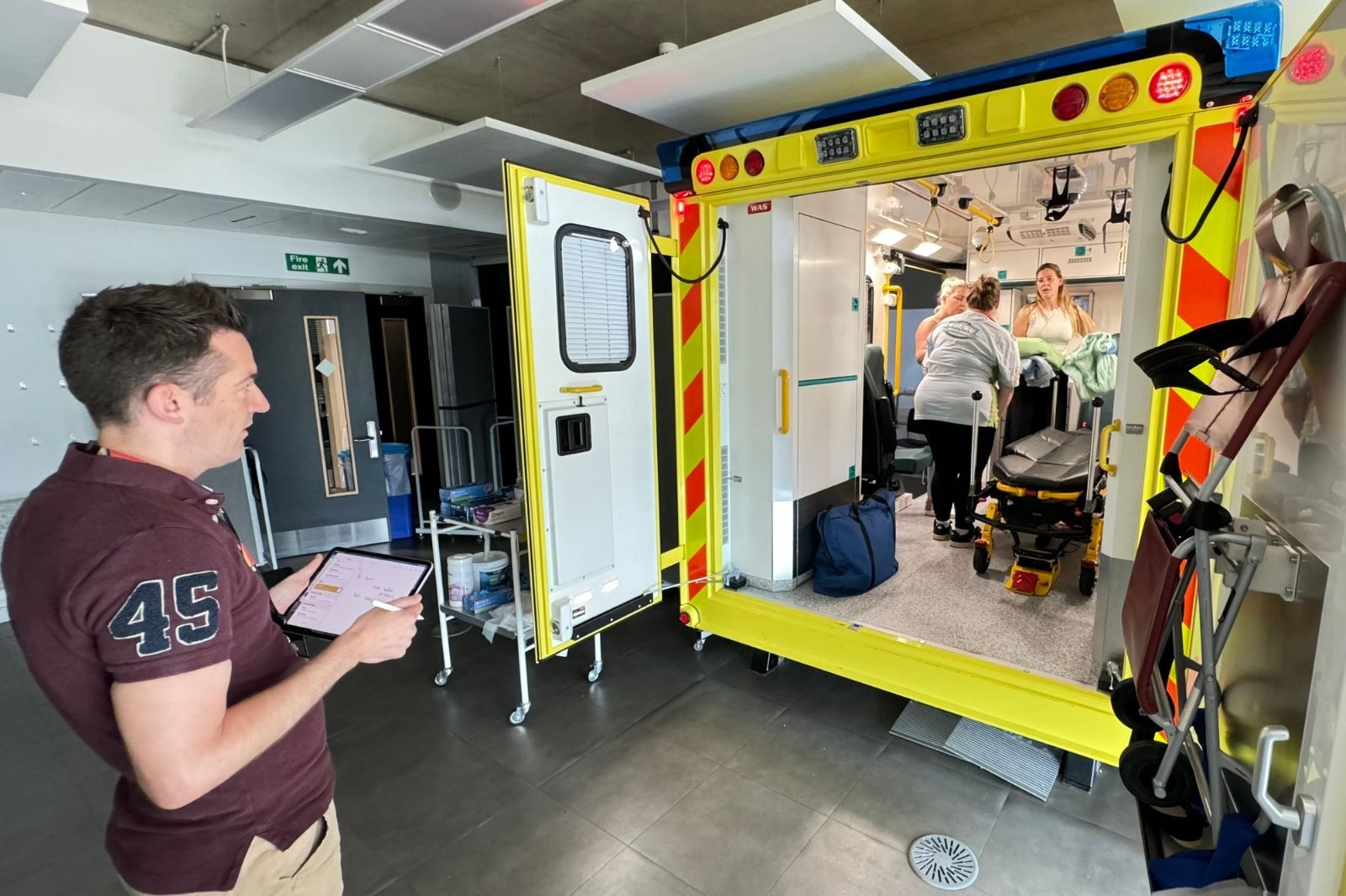
Waterside opened its doors to paramedics wanting to upskill about rare, emergency maternity situations they could face when on duty.
Training workshops were requested by East Midlands Ambulance Service (EMAS) to give their teams greater confidence, knowledge and skills in emergency maternity situations and to develop their teamworking and communications skills.
Although some aspects of emergency maternal care form part of a paramedic’s education, they can encounter rarer birthing situations where quick-thinking is vital until they reach a hospital.
The Waterside Paramedics used four teaching spaces and simulation kits, including the high-fidelity midwifery mannequin Maya (below) and, in the Paramedic Lab, the ‘simbulance’ (replica ambulance, above) and immersive environment screens depicting a patient’s home.
Taking part was Hannah Lockhart-Cole who says: “I signed up for the simulation exercises to enhance my skills in handling rare but critical scenarios. Simulations like these at the University are vital for paramedics as they provide practical exposure and enable us to apply our theoretical knowledge in a controlled environment.
“The simulation suite was realistically equipped, including University Acting student Sophie Lawlor who played the part of a patient and a setup that replicated the back of an ambulance. These immersive environments made the training more realistic and highly effective. The day was well-organised with clear goals and structured exercises and interacting with the simulation kit provided a tactile, immersive learning experience, that has greatly enhanced our practical skills.”
Kate Ewing, the University’s Lead for Clinical Simulation Learning, collaborated with Danielle Neighbour, the Programme Leader for UON’s Paramedic Science, to create the learning scenarios. Reflecting on the event, she shared: “Hosting our partners from EMAS at Waterside has been a fantastic experience. Over two days of immersive learning, their enthusiasm for simulation was evident.
“Their feedback highlights the effectiveness of our clinical simulation approach in this crucial developmental area and underscores the quality of training our Paramedic Science team provided. We are excited to continue developing this partnership with EMAS and look forward to welcoming their paramedics back in the future.”
If you want to know more about Clinical Simulation at the University, please email kate.ewing@northampton.ac.uk
Find out more about Paramedic Science at University of Northampton.
